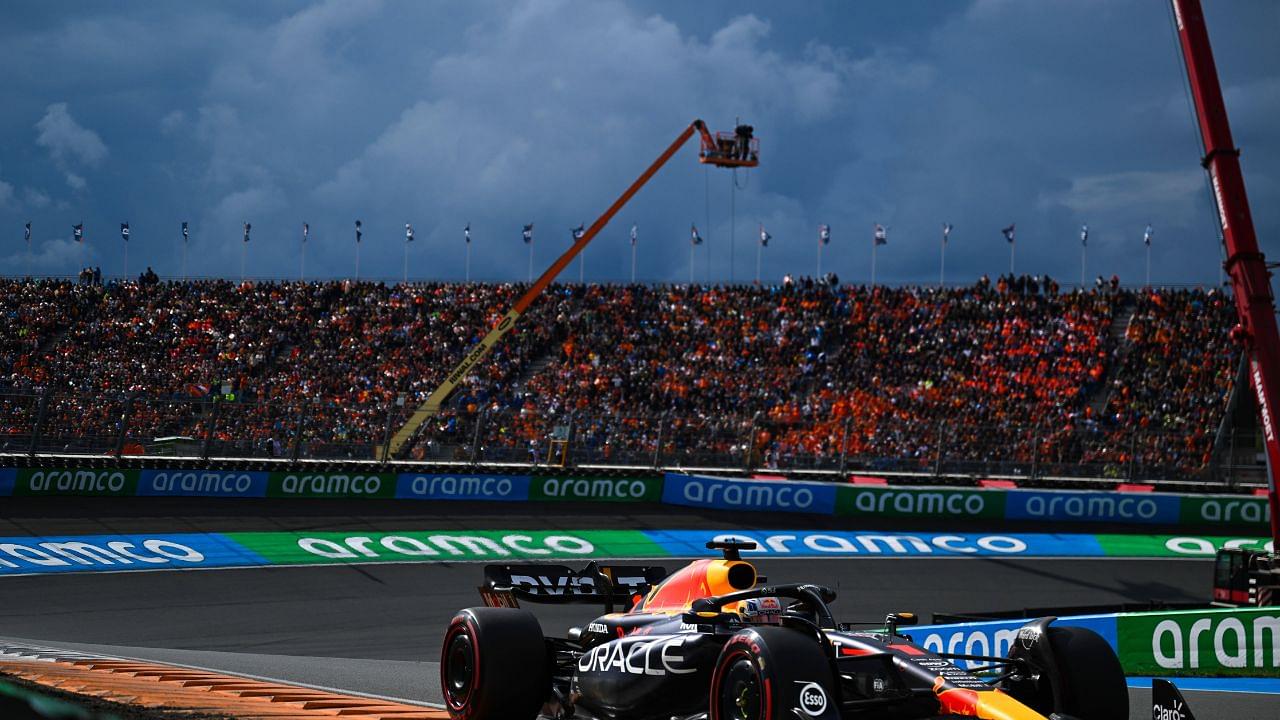
Credits: IMAGO / ZUMA Wire
Max Verstappen’s home Grand Prix is on the verge of achieving a unique accomplishment. It shall soon become the venue where race attendees leave 0% net carbon footprint, thanks to eco-friendly travel. Per an update on X by Vincenzo Landino, the race organizers and attendees are nearly there, with 98% of people already opting for eco-friendly travel practices.
Advertisement
The organizers of the Dutch GP have laid out a meticulous mobility plan for the people attending the race. They have created ‘Park and Bike’ locations for people to use bikes to reach the race venue. Furthermore, a lot of emphasis is laid on walking and using public transport. Moreover, they want to keep as many cars out of Zandvoort as possible so that they don’t have to cut down trees to make more space for parking cars. Organizers aim to achieve a 100% net zero carbon footprint by 2025.
Advertisement
The 2% of attendees that left a carbon footprint included F1 teams, media personnel, and other staff. These people arrived in their personal cars, further highlighting the massive steps taken by the event organizers to ensure the race remains as eco-friendly as possible.
The official website of the Dutch GP quoted the words of Race Director Robert van Overdijk as he gave insights into the event’s achievements. He said that they implemented a ‘smart grid’ where they bundled generators to cope with peak demand and reduce fuel usage. Furthermore, they use HVO100 Fuel to save an additional 82.5% on their carbon footprint.
Five pillars that make Max Verstappen’s home race eco-friendly
The organization of the Dutch GP is in the hands of three different organizers, including the municipality of Zandvoort. They are highly experienced in organizing eco-friendly sports events and have multiple big-name events linked with them. These include the FIH Hockey World Cup, FIVB Volleyball Championship, European Athletics Championship, KLM Open, and others.
Sustainability remains a core aspect of the Dutch GP’s organizers. In a conscious effort to combine speed and sustainability, the event’s organizers are going beyond the spectacle of racing to ensure they remain as environment-friendly as they can.
Advertisement
Five additional pillars help the organizers remain committed and on track to achieve sustainability. The first is the Nature & Recycling element, which aims to eliminate all plastic waste. Next comes the energy pillar. Here, the organizers’ goal is to reduce 95% of emissions from the energy supply.
Third is ‘F1 for everyone,’ which aims to come up with locations for people with disabilities to enjoy F1 from the best spot on the circuit. Then comes the Economic impact. This aims at reducing transport movement. Finally, the new initiatives by the organizers to commission hydrogen generators, solar panels, and additional water points.





